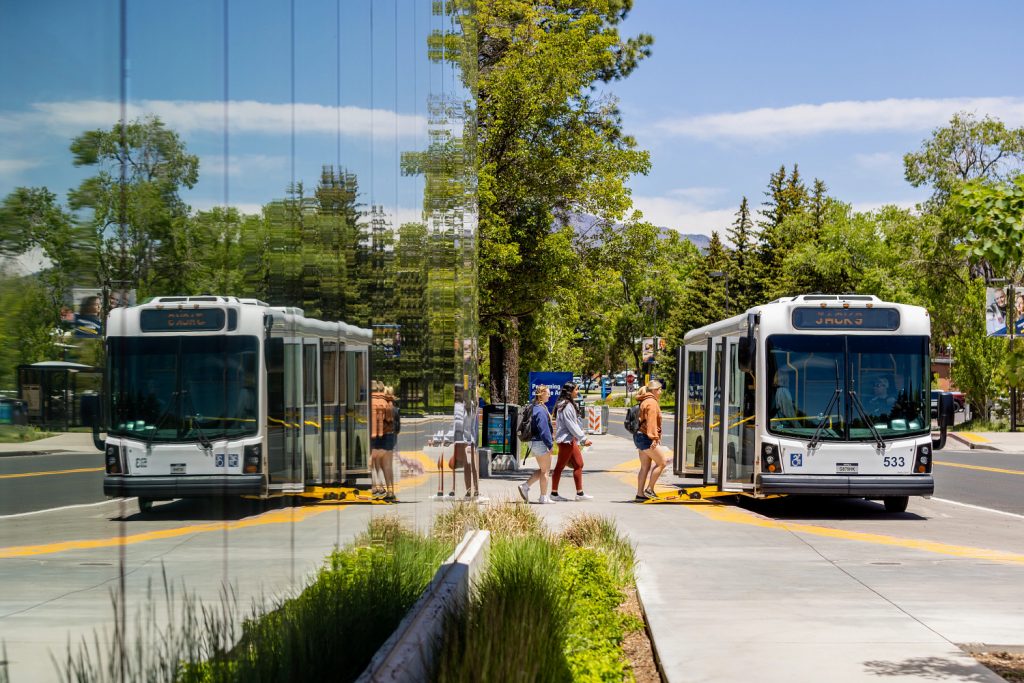NAU is one of just three universities nationwide to receive $991,772 from the U.S. Environmental Protection Agency (EPA) Diesel Emissions Reduction Act National Grants Program. The grant will cover 45% of the cost of replacing two 2008 diesel transit buses with battery electric buses and acquiring and installing high-speed charging infrastructure.
After prep work by staff in University Transit Services, the Office of Sustainability and Facility Services, the two new shuttle buses will be in operation starting in summer 2026.
The NAU Office of Sustainability and Transit Services prepared the successful grant application with help from four students in an environmental science and sustainability capstone course, who took charge of background research and analysis and developed a draft proposal under the supervision of Erik Nielsen, NAU’s chief sustainability officer.
“We could not have made this happen without such a collaborative effort,” said Erin Stam, director of University Transit Services.
The project marks a significant step toward the total electrification of NAU’s shuttle services in alignment with NAU’s 2030 carbon neutrality goals and Climate Action Plan and the new electric vehicle purchasing policy.
“Transitioning from diesel to electric buses is not just a step toward sustainability; it’s a leap into a cleaner, more efficient future for NAU,” said Rafael Rivera, assistant director of shuttle services at NAU. “Embracing electric mobility means investing in our community’s health and the planet’s well-being, paving the way for a greener tomorrow.”
Replacing diesel buses with electric buses offers numerous climate and public health benefits. The new electric buses will reduce the equivalent of 70 tons of greenhouse gases annually, representing a 13% overall reduction in emissions from campus shuttles. Diesel engines emit a variety of other harmful air pollutants, including particulate matter, carbon monoxide and nitrogen oxides, which can contribute to respiratory problems such as asthma and cardiovascular diseases. Additionally, the electric buses will decrease noise pollution along the campus shuttle routes and improve the quality of service for passengers, who take approximately 1.5 million trips each year.
There’s also a financial benefit to this change; over their lifetimes, these electric buses are expected to save NAU $20,000-$50,000 in annual operational costs as compared to the two diesel buses they will replace.
Jill Kimball | NAU Communications
(928) 523-2282 | jill.kimball@nau.edu




